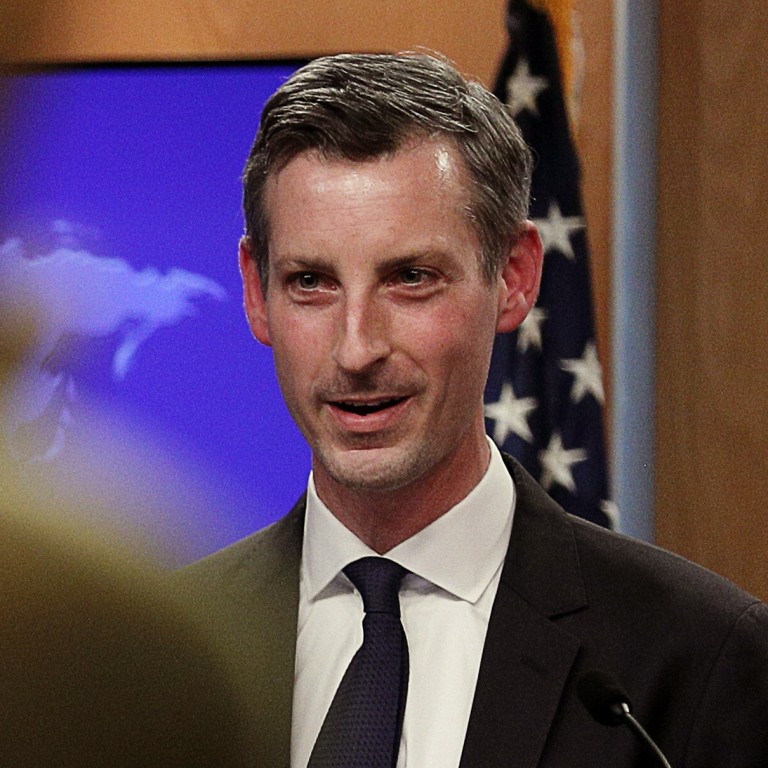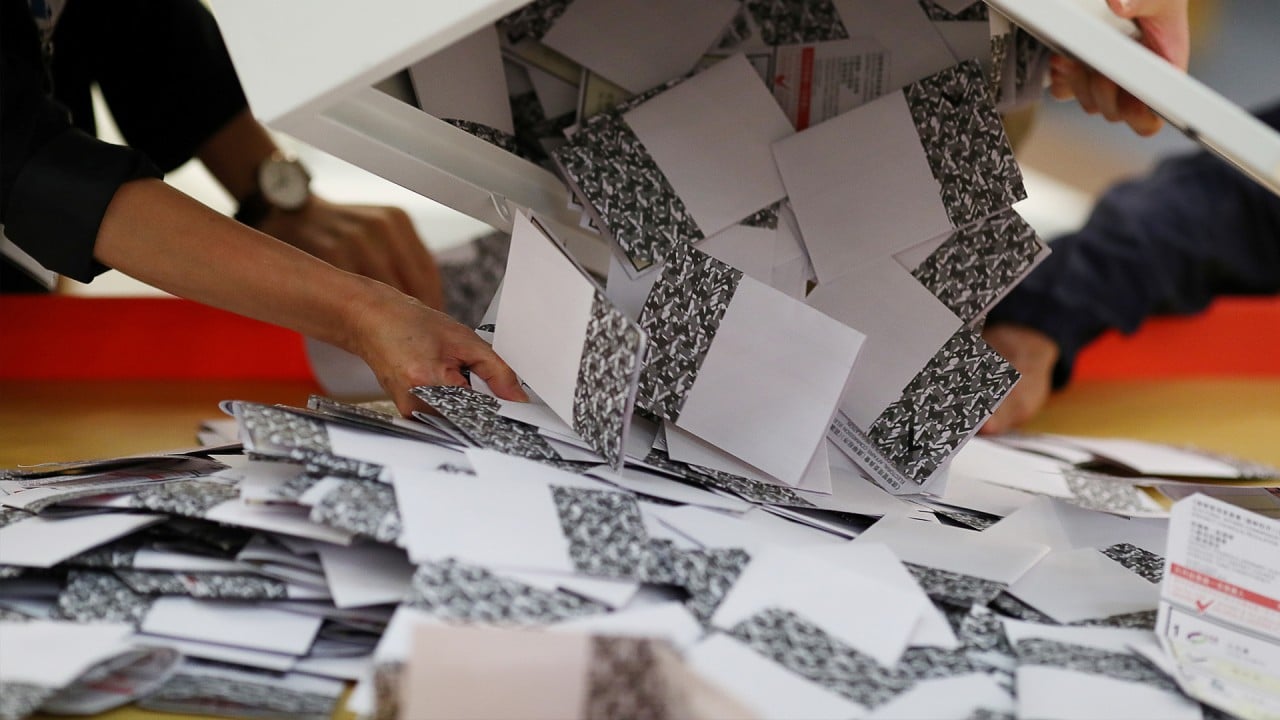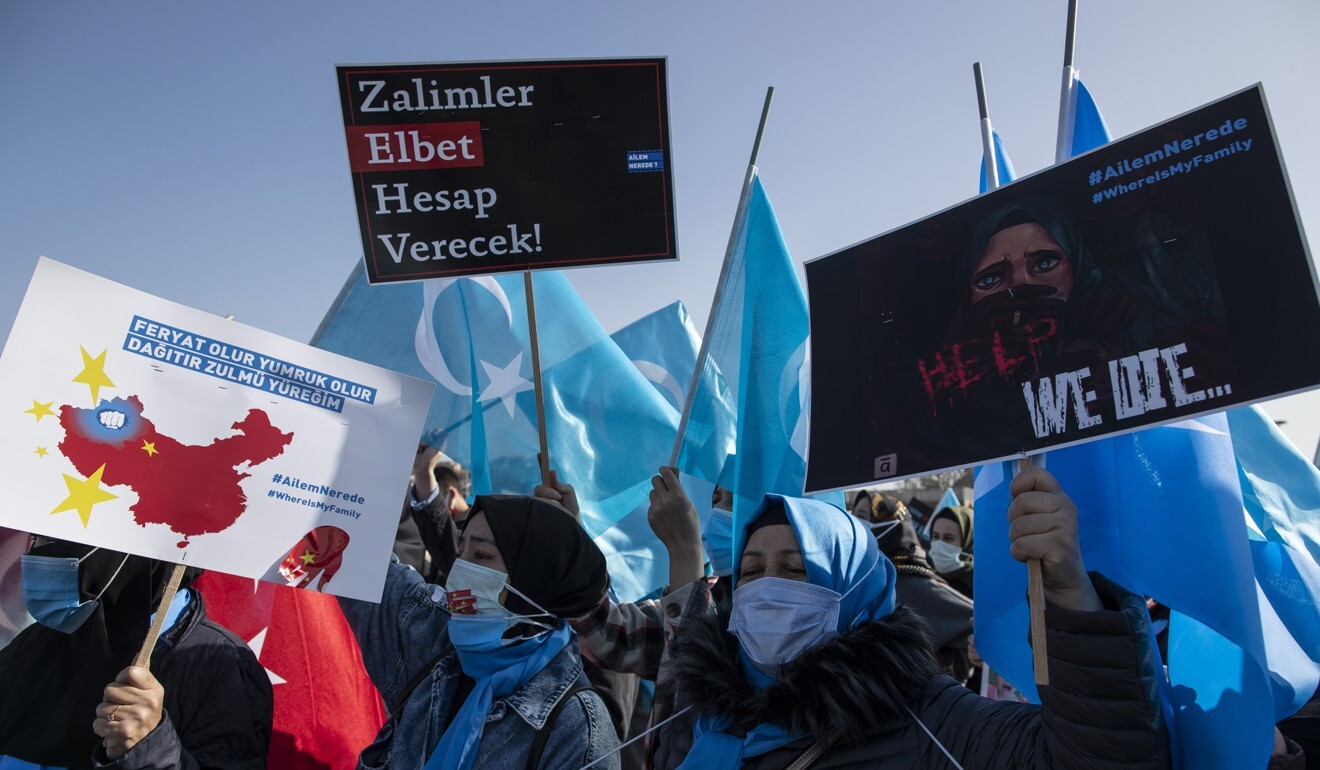
US calls China’s planned electoral changes in Hong Kong a ‘direct attack’ on city’s autonomy
- ‘If implemented, these measures would drastically undermine Hong Kong democratic institutions,’ State Department spokesman says
- Biden administration intends to harness ‘collective action’ against Beijing for rights abuses, he says
Beijing’s plan to change Hong Kong’s electoral system is a “direct attack” on its autonomy and democratic processes, the US State Department said on Friday, adding that Washington was intent on “galvanising collective action” against Chinese rights abuses.
The comments by State Department spokesman Ned Price followed news earlier in the day that Beijing would tighten its grip on Hong Kong by altering the electoral committee that chooses the city’s leader, giving it enhanced power to nominate legislative candidates.
The measure, set for approval during a week-long annual meeting of China’s rubber-stamp National People’s Congress (NPC), would further marginalise the city’s opposition already on its heels after Beijing imposed national security legislation in the wake of pro-democracy protests that rattled Hong Kong in 2019.

06:05
Two sessions: China’s parliament plans an overhaul of Hong Kong’s electoral system
The US condemns China’s “continuing assault on democratic institutions in Hong Kong”, Price said. “If implemented, these measures would drastically undermine Hong Kong democratic institutions.”
The Joe Biden administration, which on Wednesday termed China the biggest geopolitical challenge that the United States faces in the 21st century, has made cooperation among friendly nations a cornerstone of its strategy to counter the increasingly wealthy and assertive Asian power.
Price said Washington was conferring with allies and partners to “speak with one voice” in condemning China’s abuses against Uygurs and other Muslim minorities in the far western region of Xinjiang as well as the “repression” taking place in Hong Kong.
“I don’t think anyone is satisfied yet, with the international response to what has taken place in Xinjiang. And that’s precisely why we are, in many ways, galvanising the world, galvanising collective action, to make clear that these sort of abuses against human rights in Xinjiang and elsewhere will not be tolerated,” he said.
EU urges Beijing to tread carefully on Hong Kong electoral reforms
In a work report released at the opening of the NPC on Friday, China pledged to “promote the growth of mutually beneficial China-US business relations on the basis of equality and mutual respect”.
The wording represents a rebuttal to growing global criticism over China’s human rights record, said Michael Hirson, China practice head with Eurasia Group.
“‘Mutual respect’ signals Beijing’s resolve not to compromise on ‘sovereignty’ issues, from Hong Kong to Xinjiang,” he said in a report on Friday.

The Biden administration has been quick to stress its many tonal and substantive differences relative to the departed Trump administration, yet it has made relatively few changes in China policy so far.
Since it assumed control on January 20, the administration has endorsed a determination its predecessor made that China is committing genocide in its policies toward Uygurs in Xinjiang and said the US must be prepared to impose costs on Beijing for its crackdowns in Hong Kong and Xinjiang and its threats towards Taiwan.
Price said that the US called on China “to uphold its international obligations and commitments and to act consistently with Hong Kong’s law”.
“The United States stands together with the people of Hong Kong, who are seeking nothing more than the universal rights they are owed and which should be guaranteed,” he said.

